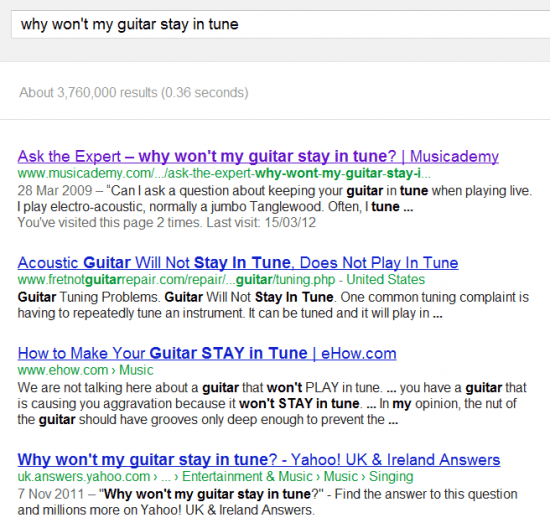An example of how small changes can have positive impacts
I'm no SEO expert, but I think I've developed a bit of a knack for getting some decent organic search results from blog posts. All I've done is utilised a few basic SEO practices, so I thought I'd share them in the hope that it inspires others to make similar changes.
Here's an example for a generic phrase that's important in the market for our company:
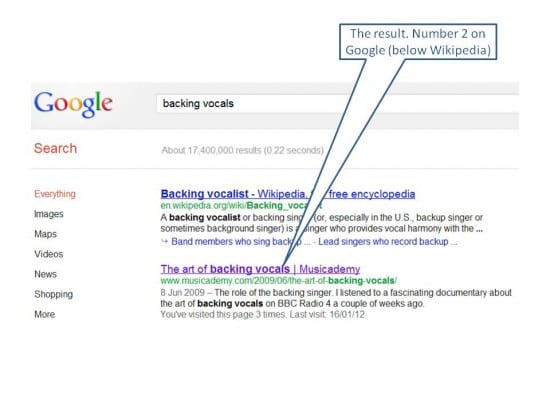
Editor's note: We checked with Marie this wasn't influenced by personal customisation in Google search. If you use Google's new Verbatim Search that strips out personalisation based on Web History (there even if you're not signed in), then this term still ranks position 2 or 3.
How did we do this?
This is for an established post, what we did was increase relevance as follows:
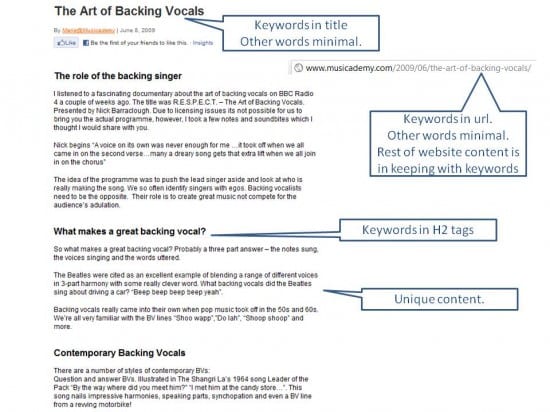
We also think comments can help too:
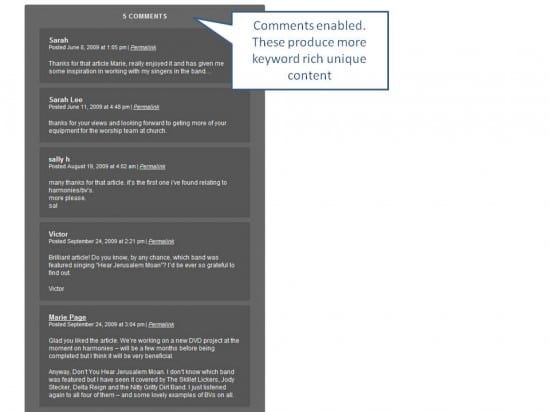
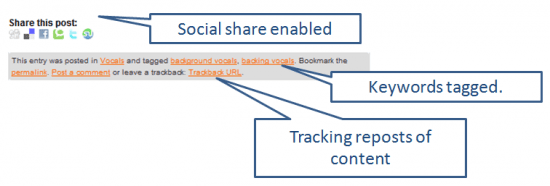
What was missing for even better SEO?
One obvious missing element here was the use of an image and therefore the opportunity to use an "Alt" tag. You can describe images on a blog post or web site using the alt tag and of course deploy keywords accordingly.
To be honest, I'd be unlikely nowadays to post an article like this without an image. Humans love images (probably even more than robots love alt text) and it's not expensive to use an iStock photo for a blog post.
This post pre-dated our Facebook page and our more recent efforts to seamlessly integrate with the biggest social media platform in the world (you can see that by the lack of likes on Facebook at the top of the article. Back in 2009 we didn't have that integration installed on the blog so older posts do look a little unloved). Nowadays I would be linking to the article on Facebook and of course the image is crucial for real estate and attention on Facebook.
What role did backlinks play?
We all know that backlinks are the holy grail of SEO. This post got to the number 2 slot without any backlinks. I'd still strongly recommend link baiting, and more recently we've given it a lot more emphasis. Good content, on a well read blog will find itself picked up and re-posted without a huge effort on your behalf. As one of our commentators said, she simply couldn't find anything else online relevant to her search for backing vocals and harmonies. So try and spot those niches and fill them.
Another example - optimising for niche / long tail phrases
In another example of a high performing blog post, we chanced upon a niche phrase that delivered well for us organically. The phrase in question was "Why won't my guitar stay in tune?"
We run an "Ask the Expert" series on our blog. Rather than email customer questions with an answer, when the question is one of wider interest, we'll write it up in a blog post. This guitar tuning post is an example of where I've barely followed my own SEO rules (no H2s, no Alt tags) but we've still hit the number 1 slot. I think the reason for it is that the title is so niche. But the title is also a relatively commonly asked question. See the graphic below. You can see the original question in the SERP and if you click through to the article, all you'll really find is a decent title tag/url, some nice relevant unique content, a few social media shares and comments both on the blog itself and via Facebook.
